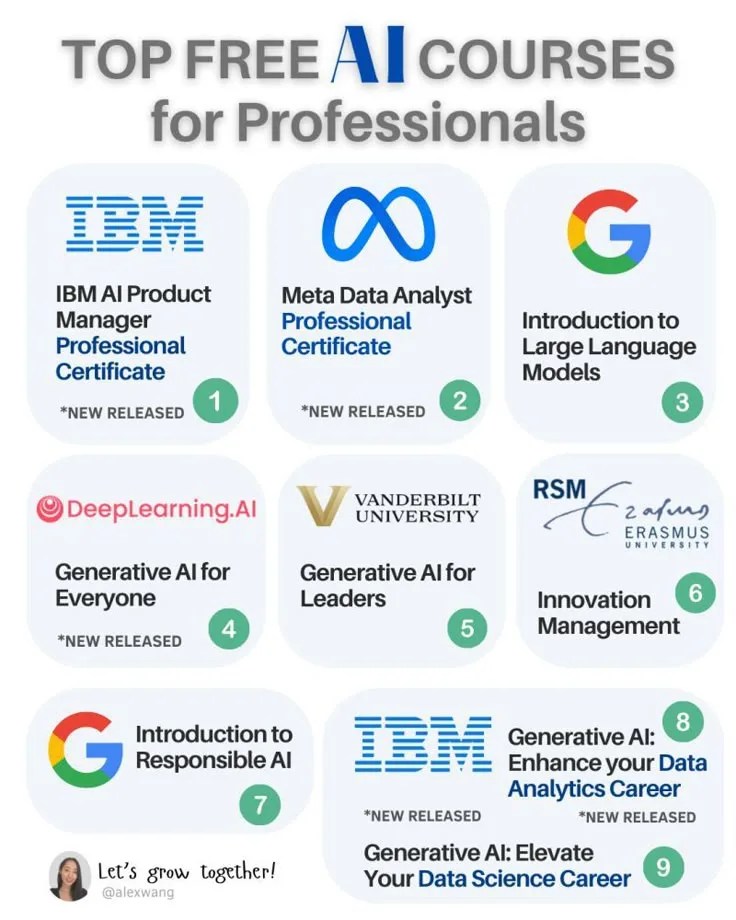Artificial Intelligence (AI) is more than just a buzzword—it’s a revolution that’s already reshaping the future of tech careers. Whether you’re a seasoned developer or a student preparing for your first tech job, understanding how AI is changing the job market in 2025 is no longer optional—it’s essential. In this article, we’ll explore the disruptive impact of AI, the emerging job roles, required skills, and how you can stay ahead of the curve.
Table of Contents
The Positive and Disruptive Impact of AI on Tech Roles
AI is expected to impact over 300 million jobs globally, with the tech industry among the most affected. But that doesn’t mean layoffs alone—in fact, many roles will evolve or be newly created. For example, jobs in automation testing, machine learning operations (MLOps), and AI ethics are surging.
According to the World Economic Forum, 97 million new roles may emerge that are more adapted to the new division of labor between humans, machines, and algorithms. In contrast, 85 million jobs may be displaced. The key takeaway? AI isn’t simply removing jobs; it’s redefining them.
Companies like OpenAI, Google, Amazon, Meta, and IBM are leading the charge in hiring professionals skilled in AI technologies and frameworks.
According to LinkedIn, AI specialist roles have seen over 74% annual growth globally since 2020.


Emerging AI-Powered Job Roles in 2025
Thanks to generative AI, many job roles are transforming into hybrid ones that combine technical skills with AI capabilities. Professionals are no longer just writing code or analyzing data—they are expected to design intelligent workflows and interact with AI tools:
- AI Prompt Engineer – Specializes in creating optimized prompts for generative tools like ChatGPT, Claude, or Bard.
- MLOps Engineer – Bridges the gap between data science and IT operations to streamline AI model deployment.
- AI Ethics Consultant – Ensures fairness, accountability, and transparency in AI deployment.
- Data Annotator & Trainer – Teaches AI systems through curated data inputs, crucial for natural language and image recognition models.
- AI UX Designer – Designs user experiences specifically for AI-powered applications.
These roles emphasize the growing collaboration between machines and humans, not competition. More importantly, they open doors for professionals with diverse skills—technical, ethical, creative, and strategic.

Essential AI Skills Tech Professionals Need in 2025
To be future-ready, professionals must expand beyond traditional programming skills. Here are the top in-demand skills for AI-enhanced roles:
- Machine Learning & Deep Learning (using TensorFlow, PyTorch, scikit-learn)
- Natural Language Processing (NLP) for chatbots and assistants
- AI Model Fine-Tuning and Evaluation
- Cloud Integration for AI (AWS SageMaker, Google Cloud AI, Microsoft Azure AI)
- Prompt Engineering for tools like ChatGPT and Anthropic Claude
- Data Visualization and Interpretation (Tableau, Power BI, or custom Python dashboards)
- Understanding AI Security Risks and implementing safeguards
Popular tools like GitHub Copilot, Notion AI, and Replit Ghostwriter are becoming must-haves for developers looking to enhance productivity and efficiency.

Navigating the Threat: Is AI a Job Killer?
Let’s be clear—AI will replace some tasks but not necessarily entire jobs. The real threat lies in not adapting. Jobs that rely solely on routine coding, basic QA, or manual data processing are the most at risk. However, professionals who upskill and learn how to collaborate with AI tools will thrive.
For example, an entry-level developer using GitHub Copilot may code twice as fast. A product manager using ChatGPT to generate reports or translate customer reviews saves hours weekly. This kind of human-AI synergy will define the most productive workplaces of 2025.
“AI won’t take your job. Someone using AI will.” — Common industry insight
Where to Learn AI Skills in 2025
The best part? You don’t need to go back to school for years. Plenty of online learning platforms offer AI education at every level:
- Coursera – Offers AI & ML certifications from Stanford, Google, and IBM
- Udacity – AI Nanodegree programs with hands-on projects
- DeepLearning.AI – Created by AI pioneer Andrew Ng
- edX – University-led courses in AI ethics, robotics, and NLP
- Fast.ai – Free practical courses on deep learning
Once you complete foundational courses, build a portfolio. Contribute to open-source projects on GitHub, create Jupyter notebooks showcasing your AI models, or even blog about your learning journey on platforms like Medium or Dev.to.

FAQs: AI and the Future of Tech Careers

1. Will AI eliminate all tech jobs in the future?
No, AI will automate some tasks but also create new roles and enhance productivity in existing ones.
2. What programming languages should I learn for AI jobs?
Python, R, and JavaScript (especially for AI tool integration) are top choices.
3. Are AI certifications worth it in 2025?
Yes, certifications from credible platforms like Coursera, Udacity, or Google boost credibility and skills.
4. Can non-coders transition into AI roles?
Absolutely. AI Ethics, product management, data curation, and UX roles are open to non-technical professionals.
5. What’s the most powerful AI tool for developers?
GitHub Copilot is leading in code generation, followed by ChatGPT and Replit Ghostwriter for writing, debugging, and documentation.



